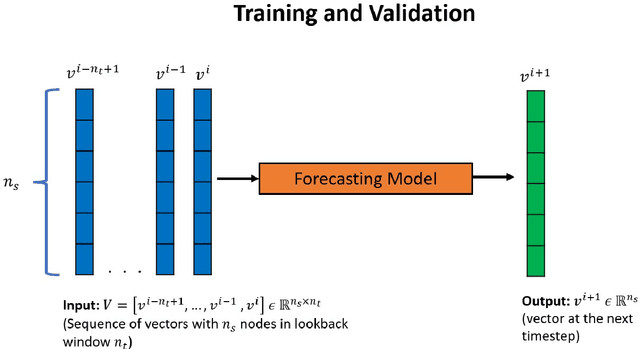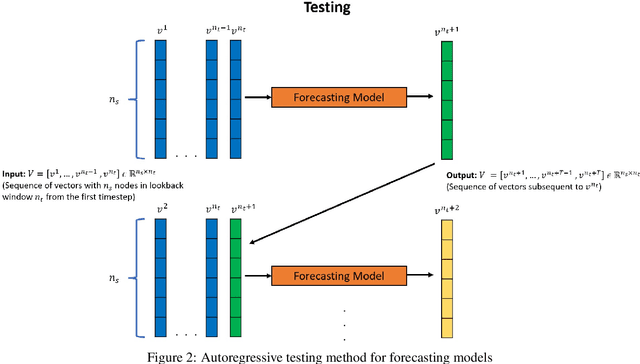Deep Convolutional Architectures for Extrapolative Forecast in Time-dependent Flow Problems
Paper and Code
Sep 18, 2022



Physical systems whose dynamics are governed by partial differential equations (PDEs) find applications in numerous fields, from engineering design to weather forecasting. The process of obtaining the solution from such PDEs may be computationally expensive for large-scale and parameterized problems. In this work, deep learning techniques developed especially for time-series forecasts, such as LSTM and TCN, or for spatial-feature extraction such as CNN, are employed to model the system dynamics for advection dominated problems. These models take as input a sequence of high-fidelity vector solutions for consecutive time-steps obtained from the PDEs and forecast the solutions for the subsequent time-steps using auto-regression; thereby reducing the computation time and power needed to obtain such high-fidelity solutions. The models are tested on numerical benchmarks (1D Burgers' equation and Stoker's dam break problem) to assess the long-term prediction accuracy, even outside the training domain (extrapolation). Non-intrusive reduced-order modelling techniques such as deep auto-encoder networks are utilized to compress the high-fidelity snapshots before feeding them as input to the forecasting models in order to reduce the complexity and the required computations in the online and offline stages. Deep ensembles are employed to perform uncertainty quantification of the forecasting models, which provides information about the variance of the predictions as a result of the epistemic uncertainties.
 Add to Chrome
Add to Chrome Add to Firefox
Add to Firefox Add to Edge
Add to Edge